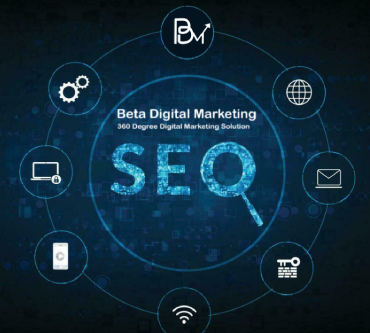The Evolution of PPC
Trends and Predictions for 2024
In the fast-paced world of digital advertising, staying ahead of the curve is not just
advantageous—it’s imperative. Pay-Per-Click (PPC) advertising, a cornerstone of
online marketing, continues to evolve. As we look forward to 2024, let’s explore the
anticipated trends and predictions that are set to shape the landscape of PPC.
- Integration of AI and Machine Learning
- Video Dominance in PPC
- Privacy-First Advertising
- Enhanced Audience Targeting
- Immersive Ad Experiences

1. Integration of AI and Machine Learning:
The integration of Artificial Intelligence (AI) and Machine Learning (ML) in PPC is not
a new concept, but its influence is expected to deepen in 2024. Automation will play
a pivotal role in optimizing ad performance, from bid management to ad copy
testing. Smart algorithms will learn from user behavior, enabling advertisers to make
data-driven decisions and allocate budgets more effectively.
The era of smarter, self-optimizing PPC campaigns is upon us, promising increased
efficiency and better targeting precision. Advertisers should prepare to embrace
AI-driven tools to streamline their campaigns and maximize return on investment.
2. Video Dominance in PPC:
Video content has been gaining traction across digital platforms, and in 2024, it is
set to become a game-changer in PPC advertising. With the rising popularity of
platforms like YouTube, advertisers will increasingly leverage video ads to engage
their audience. This shift requires advertisers to not only create visually compelling
content but also optimize their video campaigns for search engines.
Expect advancements in video ad formats and targeting options, providing
advertisers with more opportunities to convey their message creatively. Advertisers
who incorporate video into their PPC strategy stand to capture the attention of a
broader audience and leave a lasting impact.
3. Privacy-First Advertising:
Privacy concerns have been a growing consideration in the digital landscape, and
2024 will likely see increased emphasis on privacy-first advertising practices. With
evolving data protection regulations and users becoming more conscious of their
online privacy, advertisers need to prioritize transparency and user consent in their
PPC campaigns.
Ad platforms may introduce stricter measures to safeguard user data, and
advertisers will need to adjust their strategies accordingly. Building trust with the
audience by respecting their privacy will be a key factor in the success of PPC
campaigns.
4. Enhanced Audience Targeting:
As the digital space becomes more crowded, the ability to precisely target the right
audience becomes paramount. In 2024, PPC platforms are expected to offer even
more sophisticated audience targeting options. Advertisers can anticipate
advancements in demographic targeting, interest-based targeting, and the
integration of first-party data for more personalized ad delivery.
By understanding their audience better and tailoring campaigns accordingly,
advertisers can increase relevance, engagement, and ultimately, conversion rates.
Refining audience targeting strategies will be a key focus for PPC success in the
coming year.
5. Immersive Ad Experiences:
2024 is likely to witness a shift towards more immersive ad experiences within the
PPC realm. Interactive ad formats, such as augmented reality (AR) and virtual reality
(VR), may become more prevalent. These formats have the potential to captivate
users and provide a more engaging way for advertisers to showcase their products
or services.
Advertisers should explore creative ways to incorporate interactive elements into
their PPC campaigns, offering users a memorable and interactive journey. The goal is
to stand out in a competitive digital landscape and create a lasting impression on
potential customers.
Conclusion: Preparing for the Future of PPC
The dominance of mobile devices in online searches is undeniable, and Google has
responded by adopting a mobile-first indexing approach. In 2024, mobile
optimization is no longer optional; it’s a necessity for successful SEO.
Ensure that your website is not just mobile-friendly but optimized for a superior
mobile experience. Test your site’s performance on various devices, optimize images
for mobile viewing, and prioritize responsive design. Google’s algorithms will reward
websites that prioritize the mobile user experience with higher search rankings.










